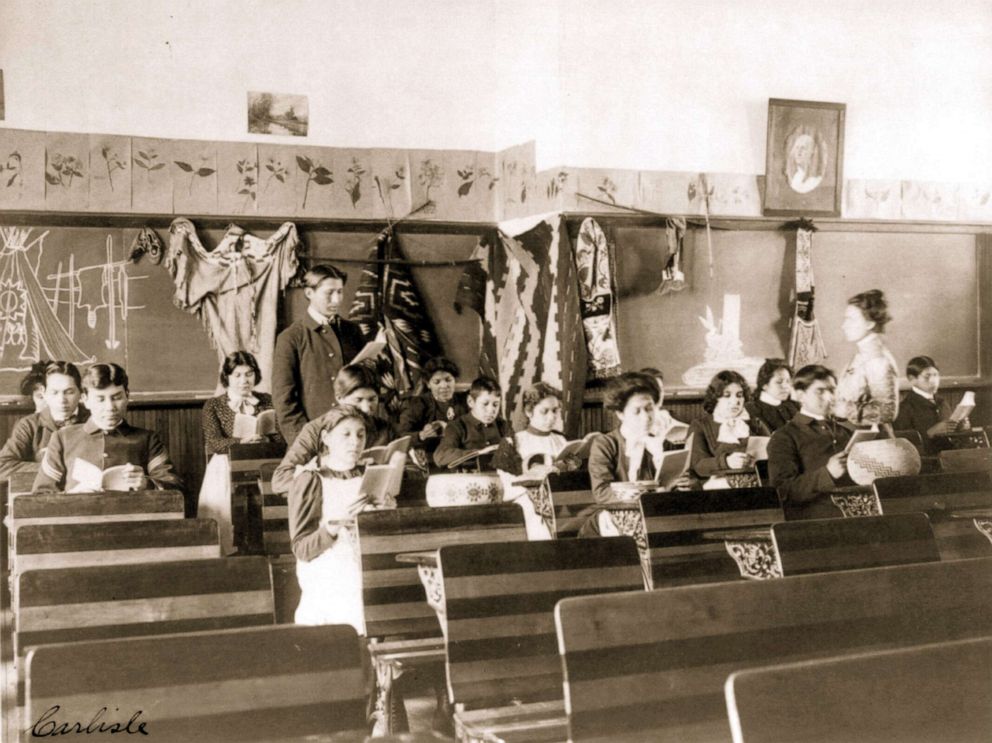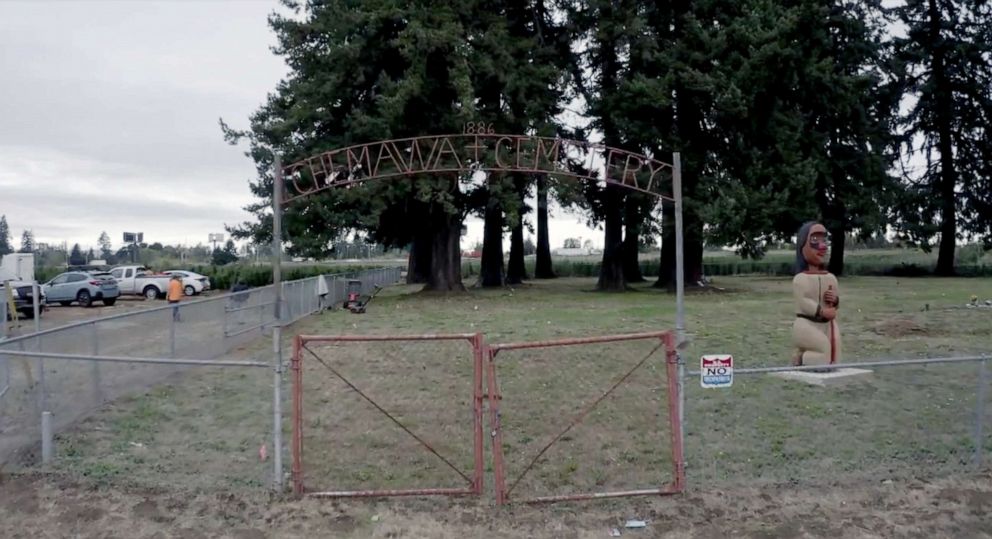Indigenous groups keep pushing for justice for victims of boarding school abuses
As officials hear from community, a school works to keep native language alive.
It's been nearly half a year since Secretary Deb Haaland released the first report in the Interior Department's investigation into the legacy and lasting trauma from Indian boarding schools.
For more than a century, from 1819 to the late 1960s, the federal government and some religious organizations took Indigenous children from their families, their land and forcibly assimilated them into White European culture.
"I called the boarding school era one of America's best kept secrets," said scholar Denise Lajimodiere. "Boarding school and the legacy of boarding schools has impacted every...Native family."
Lajimodiere chronicled the experience of boarding school survivors in her book Stringing Rosaries.
"Their hair was immediately cut…some had kerosene put in their hair. And they said it burned…they were given uniforms," Lajimodiere said. "They had to work half a day… in the kitchen, in the laundry room…work in the fields that they didn't get paid for."

For more than a decade, Lajimodiere has researched the number of schools that existed in the United States, something the government didn't begin to do until last year.
The report released by the Interior Department found that more than 500 American Indian, Alaska Native and Native Hawaiian children died over the course of 150 years in the boarding schools. Scholars estimate the numbers could be much higher. Countless others were physically, mentally and emotionally abused as their language and cultural identities were forbidden by school staff, according to the investigation.
Haaland, the first Indigenous cabinet member, has been traveling around the country as part of the "Road to Healing Tour," to meet with Indigenous communities.

"I want apologies. I want my language back. I want our land back. I want everything back," an emotional Ruby Left Hand Bull Sanchez told Haaland during her stop at the Rosebud Sioux reservation last month.
Haaland, a member of the Laguna Pueblo, recounted her own family's history with boarding schools.

"We all carry the trauma from that era in our hearts. My ancestors endured the horrors of the Indian boarding school assimilation policies carried out by the same department that I now lead. This is the first time in history that a United States Cabinet secretary comes to the table with this shared trauma. That's not lost on me. I'm determined to use my position for the good of our people," Haaland said at the Oct. 15 meeting.
For those who lived through the abuse, the pain is still raw.
Dorothy McLane was six years old when she became a student at a Rosebud boarding school, where Haaland's meeting took place. The school has long been closed but the memories still fresh for McLane.
She told "Nightline" she vividly remembers being forced to run laps around a building and being beaten by a school matron as punishment.

"I see myself as a little girl here, 6-years-old and trying to just…be a kid, trying to be a child and trying to be loved and it wasn't in here," McLane said. "I mean, there's I don't ever remember anybody telling me they loved me. What I remember most is the punishment."
Shylee Brave, a granddaughter of a boarding school survivor and an alum of the Sicangu Youth Council, has been pushing for the federal government and others to acknowledge the abuses and help tribes rebuild their lost culture.
"We didn't go to boarding school, but we still deal with the same traumas that our grandparents and great-grandparents went through," Brave said.
Brave told "Nightline," that Haaland's visit sent a powerful message.
"I kind of just I'm hoping that people see how resilient we are as Native American people because they pretty much tried to kill us off and they couldn't," she said.

Brave said she was optimistic that the federal government would make amends.
"I think that Secretary Haaland and her team are doing what they can and what they know they should do, because if they didn't think that the government did anything wrong, they wouldn't be doing what they're trying to," Brave said.
The work of the youth council Brave belonged to has helped to heal some open wounds.
Last year, the remains of Indigenous children who died at the Carlisle Indian School in Pennsylvania over a century ago were finally returned to Rosebud Sioux reservation.

The Sicangu Youth Council helped lead 6 years of negotiations between the tribe and the U.S. Army which oversees the grounds where the school once stood.
The Rosebud Sioux community has also launched a new education program to help preserve their dying language.
Brave is among the people working at an immersion school that teaches children of Indigenous families as young as 4 the Lakota language. Tribal leaders predict the language could be wiped out in a decade.
"In order to do our ceremonies, we have to be able to sing and speak in the language to the spirits. And so if we can't do that, then we can't continue to do our sacred ceremonies," Carmelita Shouldis, who teaches at the school, told "Nightline."

The school is looking to expand beyond its kindergarten to second grade classes.
Brave said she is proud of the work she's done to regain her community's heritage and culture and hopes that it will pay off for generations to come.
"I just really hope to be able to one day sit down with my kids, if I ever have any, and speak the language and just be able to converse in the Lakota language," she said.
ABC News' Jessica Hopper and Marjorie McAfee contributed to this report.




